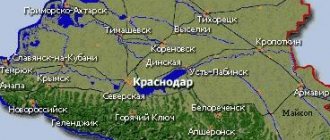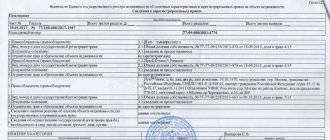What does this mean
According to Constitutional Law, every person can count on:
- Providing a safe and healthy environment for those living in houses and apartments.
- Improve conditions if necessary.
- Inviolability of housing.
- Stable use of available space.
- Having a place where you can permanently stay.
Local executive authorities should encourage construction to implement the rights described.
For this purpose, the market itself is developing, for which funds are constantly being allocated. But the Constitution does not say that absolutely all citizens must be provided with housing. They themselves have the right to change their conditions using their own finances, attracting additional help. An exception is made for the poor and other categories who need additional support. Important! The inadmissibility of arbitrary deprivation of housing is one of the additional guarantees in the Constitution in this area. This means that eviction can only be based on court decisions and in other situations specified at the legislative level.
Right to housing
print version
Article 40 of the Constitution of the Russian Federation proclaims:
"1. Everyone has the right to housing. No one can be arbitrarily deprived of their home.
2. State authorities and local self-government bodies encourage housing construction and create conditions for the exercise of the right to housing.
3. Low-income people and other citizens specified in the law who need housing are provided with it free of charge or for an affordable fee from state, municipal and other housing funds in accordance with the norms established by law.”
The right to healthy housing is included as an integral part of the concept of a “decent standard of living” for every person, proclaimed by the Universal Declaration of Human Rights and the International Covenant on Economic, Social and Cultural Rights.
The constitutional right to housing expresses the essence of the system for meeting the housing needs of society, i.e. it is an essential fundamental right. The system of specific housing rights of citizens depends on it, which must comply with and not contradict it. The behavior of citizens, state bodies, and business entities when choosing options for solving housing problems from those legally possible in a specific life situation often depends on how the content of this right is determined.
The current Constitution reflects the change of eras in meeting housing needs, the transition to a new system, which consists of such constitutional foundations as the rejection of the state monopoly on property and economic activity, the establishment of equality and different forms of ownership, private ownership of housing and land. The state housing stock lost its dominant position, private ownership of the housing stock by citizens and legal entities, private design and construction organizations, banks arose, a market for housing, land, etc. emerged.
By enshrining the right to housing in the Constitution of the Russian Federation, a threefold goal is achieved:
- the moral requirement of society is determined, according to which everyone should have a roof over their head and not be forced to vagrancy;
— a legal principle is formulated that determines the actions of all branches of government, as well as the content of the relevant legislation;
— this right appears as a subjective right of a specific subject of housing legal relations (needing improvement of living conditions, tenant, owner).
The right to housing is implemented in the Housing Code of the Russian Federation, as well as in comprehensive laws and other acts. The legislation on the right to housing is associated with a large amount of law enforcement practice in courts of general jurisdiction, the Constitutional Court, and executive authorities.
The word “everyone” in the commented article means all individuals located on the territory of Russia. Legal entities - owners of residential premises, being participants in legal relations as landlords, do not have a constitutional right to housing (Part 2 of Article 671 of the Civil Code of the Russian Federation).
Residential premises under social rental agreements are not provided to foreign citizens and stateless persons, unless otherwise provided by an international treaty of the Russian Federation (Part 5 of Article 49 of the Housing Code of the Russian Federation).
The objects of housing rights are residential premises. Residential premises are recognized as isolated premises, which are real estate and are suitable for permanent residence of citizens (meets established sanitary and technical rules and regulations, other legal requirements; Article 15 of the Housing Code of the Russian Federation). Residential premises (single-apartment residential building, apartment, part of a residential building or apartment) are the subject of a rental agreement (social, commercial, rental of specialized residential premises).
However, housing is not only the premises that can be the object of a rental agreement. Any natural shelter has long served as a human home. On the other hand, many of the man-made premises (shelters) cannot be called dwellings due to their specific purpose, although one can stay (live) in them for a certain time. These are, for example, a hospital, a prison, a bomb shelter, a school, etc.
A dwelling can be considered not only as a type of premises, but also as a specific place in a specific territory that has address and geographic coordinates. For example, mobile (portable) dwellings of some peoples can be installed in a certain territory (in populated areas), where there are no restrictions on the right to freedom of movement and choice of place of residence.
The dwelling is always located in a certain place where a person permanently or primarily lives (Part 1 of Article 20 of the Civil Code of the Russian Federation). Place of residence means a residential building, apartment, office premises, specialized houses (dormitory, hotel-shelter, house of maneuverable fund, special home for single elderly people, boarding house for the disabled, veterans, etc.), as well as other residential premises, in which a citizen permanently or primarily resides as an owner, under a lease (sublease) agreement or on other grounds provided for by the legislation of the Russian Federation (Part 8 of Article 2 of the Law of the Russian Federation of June 25, 1993 “On the right of citizens of the Russian Federation to freedom of movement and choice of place stay and residence within the Russian Federation"). However, before determining a specific type of housing when choosing a place of residence, citizens determine the location in a specific territory within Russia where their house, apartment or other dwelling will be located.
You can choose a city, village or some other place to live. The territory of residence will have legal significance for possible restrictions on the right of citizens to freedom of movement, registration and deregistration at the place of residence, unauthorized construction of houses and buildings on a land plot not allocated for construction purposes.
A dwelling, therefore, can be understood as a chosen place, the address-geographical coordinates of which determine a room specially designed for the free residence of a person.
No one can be arbitrarily deprived of their home. This constitutional principle ensures the right to housing. Any deprivation of housing not based on the law is considered arbitrary. The legislation contains rules ensuring compliance with this principle.
Termination of ownership of a home is possible on the grounds provided for in Art. 235 of the Civil Code of the Russian Federation.
Family members of the owner or persons who have lost family ties with the owner of the residential premises, who have, on an equal basis with the owner, the right of common property with him, enjoy an equal right of ownership of the residential premises (common property) with him, regardless of the size of their share (Article 244 of the Civil Code of the Russian Federation ).
Special protection against arbitrary deprivation of housing is provided for members of the owner's family who are not homeowners. Thus, they are assigned the opportunity to live in residential premises under the conditions provided for by housing legislation (clause 1 of Article 292 of the Civil Code of the Russian Federation). This right is ensured by absolute protection from any person, including the owner of residential premises (clause 3 of article 292, article 305 of the Civil Code of the Russian Federation). The transfer of ownership of a residential building or apartment to another person does not entail the termination of the right to use the residential premises by family members of the previous owner (Clause 2 of Article 292 of the Civil Code of the Russian Federation).
The law establishes the grounds and procedure for eviction of citizens who are not homeowners (Articles 687, 688 of the Civil Code of the Russian Federation). In some cases, the legislator connects the possibility of deprivation of housing with the grounds for its provision or occupation. Thus, without the provision of other residential premises, citizens to whom they were provided in connection with their labor relations at a specific enterprise, institution, organization and who terminated these labor relations may be evicted from office premises and dormitories (Articles 107, 110 of the Housing Code of the Russian Federation). Citizens who arbitrarily occupied residential premises, as well as persons who received a warrant to occupy premises as a result of unlawful actions, are subject to eviction (Articles 99, 100 of the Housing Code of the Russian Federation).
Part 2 of the commented article is addressed to state authorities and local self-government, which are charged with the duty to encourage housing construction and create conditions for the exercise of the right to housing.
Encouraging housing construction means a wide range of activities of government bodies and local self-government bodies - from planning capital construction to accepting ready-made residential buildings for operation. This area of activity has been elevated to the constitutional level, since it ensures the fulfillment of the most important function of the welfare state - to provide people with housing.
Creating conditions for the exercise of the right to housing and encouraging housing construction require the implementation of financial, organizational, and legislative measures that best contribute to meeting the housing needs of citizens.
New forms of financing and lending for housing construction are provided.
As part of the implementation of the national project on affordable housing, a number of federal laws were adopted: Urban Planning Code of the Russian Federation (Article 16), dated December 30, 2004 No. 215-FZ “On Housing Savings Cooperatives” (Article 47), dated December 30, 2004 No. 214- Federal Law “On participation in shared construction of apartment buildings and other real estate” (Article 40), Resolution of the Administration of the Altai Territory dated 10.10.2014 No. 461 “On approval of the state program of the Altai Territory “State support for large families” for 2015 - 2021”, other regulations.
In the conditions of a market economic system, the implementation of the principle of meeting housing needs has necessitated the need for the state to take additional measures to help the poor and other citizens in need of housing. First of all, this refers to cases of free provision of housing from state and municipal funds, since in market conditions citizens must purchase housing through civil transactions.
Part 3 of the article under consideration establishes the new role of the state and local governments in the housing market, which is reduced to promoting housing construction and its encouragement, like any form of ownership, as well as the legal regulation of relations related to meeting the housing needs of society, determining the composition of the housing stock for social use for socially vulnerable segments of the population and other persons.
Everyone independently invests money in the purchase or construction of housing, or rental housing, not counting on solving their housing problem at the expense of state and municipal housing funds, but relying on a system of compensation (subsidies) and loans for the purchase of housing. This is how the housing problem is objectively solved for the majority. Minority, i.e. low-income people and other persons named in the laws are provided with housing in accordance with the norms established by law from state, municipal and other housing funds. They can use the space provided under the terms of social rental of residential premises for an affordable rent or free of charge.
According to part 2 of Art. 49 of the Housing Code of the Russian Federation, low-income citizens are citizens if they are recognized as such by a local government body in the manner established by the law of the relevant constituent entity of the Federation, taking into account the income per family member and the value of property owned by family members and subject to taxation. The regulatory basis for recognizing a citizen as low-income is the Government Decree of August 20, 2003 No. 512 “On the list of types of income taken into account when calculating the average per capita family income and the income of a citizen living alone to provide them with state social assistance”, the provisions of the Tax Code of the Russian Federation, the law of the Altai Territory of 07/06 .2006 No. 60-ZS “On the procedure for determining the amount of income per each family member and the value of property owned by family members and subject to taxation, in order to recognize citizens as low-income and provide them with residential premises of the municipal housing stock under social rental agreements” and other laws.
Along with the poor, there may be other citizens in need of housing. Part 3 Art. 49 of the Housing Code of the Russian Federation directly provides for the right of the federal and regional legislator to regulate the provision of residential premises to other categories of citizens under social rental agreements from the housing stock of the Russian Federation or the housing stock of a constituent entity of the Federation. Thus, the Law of the Altai Territory dated December 9, 2005 No. 115-ZS “On the procedure for local government bodies to keep records of citizens as those in need of residential premises provided under social tenancy agreements” was adopted; the Law of the Altai Territory dated September 14, 2006 No. 92-ZS “On vesting local government bodies with state powers to provide housing for veterans, disabled people and families with disabled children" (together with the "List of municipal districts and urban districts whose local government bodies are vested with state powers, and the amount of subventions provided to local budgets") and others regulations.
Low-income people and other citizens specified in the law are provided with housing only in cases of need. The conditions of need are defined in the Housing Code of the Russian Federation; additional conditions of need can be introduced by the laws of the constituent entities of the Federation, since, according to Art. 72 of the Constitution of the Russian Federation, issues of housing legislation are referred to the joint jurisdiction of the Russian Federation and its constituent entities.
Tenants of residential premises under a social tenancy agreement must pay fees for the maintenance and repair of residential premises, fees for the use of residential premises (rental fees) and fees for utilities.
Citizens recognized as low-income are exempt from paying fees for the use of residential premises (Part 9 of Article 156 of the Housing Code of the Russian Federation). The region has adopted: Law of the Altai Territory dated December 27, 2007 No. 156-ZS “On the provision of social support measures for payment of housing and utilities to certain categories of citizens in the Altai Territory”, Law of the Altai Territory dated December 7, 2007 No. 128-ZS “On the provision subsidies for the payment of housing and utilities in the Altai Territory”, etc., ensuring proportionality of payments made by citizens to their income. Date of publication: 01/12/2015 Date of modification: 21/12/2021
Content and essence
In the Russian Federation, the Constitutional right to housing is a multidimensional phenomenon. This is due to implementation in various legal relations. Usually they are civil and administrative, constitutional.
This right is acquired from birth and is an integral part of the life of every person and citizen.
The direction also has some specific properties, including:
- Citizens are vested with rights without strict individualization. The state undertakes to create the conditions under which rights are realized. The same applies to local governments.
- Law arises directly from law.
At the same time, the implementation of rights presupposes a certain sequence of actions performed by the state and the individual himself.
It is also useful to read: Social human rights based on the Constitution of the Russian Federation
Article 40
1. Everyone has the right to housing. No one can be arbitrarily deprived of their home.
2. State authorities and local self-government bodies encourage housing construction and create conditions for the exercise of the right to housing.
3. Low-income people and other citizens specified in the law who need housing are provided with it free of charge or for an affordable fee from state, municipal and other housing funds in accordance with the norms established by law.
Article 41
1. Everyone has the right to health care and medical care. Medical care in state and municipal health care institutions is provided to citizens free of charge at the expense of the corresponding budget, insurance premiums, and other revenues.
2. In the Russian Federation, federal programs for the protection and promotion of public health are financed, measures are taken to develop state, municipal, and private health care systems, activities that promote human health, the development of physical culture and sports, environmental and sanitary-epidemiological well-being are encouraged.
3. Concealment by officials of facts and circumstances that pose a threat to the life and health of people entails liability in accordance with federal law.
Article 42
Everyone has the right to a favorable environment, reliable information about its condition and to compensation for damage caused to his health or property by environmental violations.
Article 43
1. Everyone has the right to education.
2. General accessibility and freeness of preschool, basic general and secondary vocational education in state or municipal educational institutions and enterprises are guaranteed.
3. Everyone has the right to receive higher education free of charge on a competitive basis at a state or municipal educational institution and enterprise.
4. Basic general education is mandatory. Parents or persons replacing them ensure that their children receive basic general education.
5. The Russian Federation sets federal state educational standards and supports various forms of education and self-education.
Article 44
1. Everyone is guaranteed freedom of literary, artistic, scientific, technical and other types of creativity and teaching. Intellectual property is protected by law.
2. Everyone has the right to participate in cultural life and use cultural institutions, to have access to cultural values.
3. Everyone is obliged to take care of the preservation of historical and cultural heritage, to protect historical and cultural monuments.
Article 45
1. State protection of human and civil rights and freedoms in the Russian Federation is guaranteed.
2. Everyone has the right to protect their rights and freedoms by all means not prohibited by law.
Article 46
1. Everyone is guaranteed judicial protection of his rights and freedoms.
2. Decisions and actions (or inaction) of state authorities, local governments, public associations and officials may be appealed to the court.
3. Everyone has the right, in accordance with international treaties of the Russian Federation, to apply to interstate bodies for the protection of human rights and freedoms if all available domestic remedies have been exhausted.
Article 47
1. No one can be deprived of the right to have his case considered in the court and by the judge to whose jurisdiction it is assigned by law.
2. A person accused of committing a crime has the right to have his case examined by a court with the participation of a jury in cases provided for by federal law.
Article 48
1. Everyone is guaranteed the right to receive qualified legal assistance. In cases provided for by law, legal assistance is provided free of charge.
2. Every person detained, taken into custody, or accused of committing a crime has the right to have the assistance of a lawyer (defender) from the moment of detention, detention, or presentation of charges, respectively.
Article 49
1. Everyone accused of committing a crime is considered innocent until his guilt is proven in the manner prescribed by federal law and established by a court verdict that has entered into legal force.
2. The accused is not required to prove his innocence.
3. Irremovable doubts about a person’s guilt are interpreted in favor of the accused.
Article 50
1. No one can be convicted twice for the same crime.
2. In the administration of justice, the use of evidence obtained in violation of federal law is not permitted.
3. Everyone convicted of a crime has the right to have the sentence reviewed by a higher court in the manner prescribed by federal law, as well as the right to ask for pardon or commutation of punishment.
Article 51
1. No one is obliged to testify against himself, his spouse and close relatives, the circle of whom is determined by federal law.
2. Federal law may establish other cases of exemption from the obligation to give testimony.
Article 52
The rights of victims of crimes and abuses of power are protected by law. The state provides victims with access to justice and compensation for damage caused.
Article 53
Everyone has the right to compensation from the state for damage caused by illegal actions (or inaction) of state authorities or their officials.
Article 54
1. The law establishing or aggravating liability does not have retroactive effect.
2. No one can be held responsible for an act that at the time of its commission was not recognized as an offense. If, after the commission of an offense, liability for it is eliminated or mitigated, the new law applies.
Article 55
1. The enumeration in the Constitution of the Russian Federation of fundamental rights and freedoms should not be interpreted as a denial or derogation of other generally recognized rights and freedoms of man and citizen.
2. In the Russian Federation, laws should not be issued that abolish or diminish the rights and freedoms of man and citizen.
3. The rights and freedoms of man and citizen may be limited by federal law only to the extent necessary in order to protect the foundations of the constitutional system, morality, health, rights and legitimate interests of other persons, to ensure the defense of the country and the security of the state.
Article 56
1. In a state of emergency, to ensure the safety of citizens and protect the constitutional order, in accordance with the federal constitutional law, certain restrictions on rights and freedoms may be established, indicating the limits and duration of their validity.
2. A state of emergency throughout the entire territory of the Russian Federation and in its individual localities may be introduced in the presence of circumstances and in the manner established by federal constitutional law.
3. The rights and freedoms provided for in Articles 20, 21, 23 (part 1), 24, 28, 34 (part 1), 40 (part 1), 46 - 54 of the Constitution of the Russian Federation are not subject to restrictions.
Article 57
Everyone is obliged to pay legally established taxes and fees. Laws that establish new taxes or worsen the situation of taxpayers do not have retroactive effect.
Article 58
Everyone is obliged to preserve nature and the environment, and take care of natural resources.
Article 59
1. Defense of the Fatherland is the duty and responsibility of a citizen of the Russian Federation.
2. A citizen of the Russian Federation performs military service in accordance with federal law.
3. A citizen of the Russian Federation, if his convictions or religion is contrary to military service, as well as in other cases established by federal law, has the right to replace it with alternative civilian service.
Article 60
A citizen of the Russian Federation can independently exercise their rights and obligations in full from the age of 18.
Article 61
1. A citizen of the Russian Federation cannot be expelled from the Russian Federation or extradited to another state.
2. The Russian Federation guarantees its citizens protection and patronage outside its borders.
Article 62
1. A citizen of the Russian Federation may have citizenship of a foreign state (dual citizenship) in accordance with federal law or an international treaty of the Russian Federation.
2. The fact that a citizen of the Russian Federation has citizenship of a foreign state does not detract from his rights and freedoms and does not relieve him of the obligations arising from Russian citizenship, unless otherwise provided by federal law or an international treaty of the Russian Federation.
3. Foreign citizens and stateless persons enjoy rights in the Russian Federation and bear responsibilities on an equal basis with citizens of the Russian Federation, except in cases established by federal law or an international treaty of the Russian Federation.
Article 63
1. The Russian Federation provides political asylum to foreign citizens and stateless persons in accordance with generally recognized norms of international law.
2. In the Russian Federation, the extradition to other states of persons persecuted for political beliefs, as well as for actions (or inactions) not recognized as a crime in the Russian Federation, is not allowed. The extradition of persons accused of committing a crime, as well as the transfer of convicted persons to serve their sentences in other states, is carried out on the basis of federal law or an international treaty of the Russian Federation.
Article 64
The provisions of this chapter constitute the basis of the legal status of an individual in the Russian Federation and cannot be changed except in the manner established by this Constitution.
When authority is violated
According to the Housing Code of the Russian Federation, a person can be found guilty of a violation in this area if at least one of the conditions listed below is present:
- Residential premises are not used for their intended purpose.
- Unauthorized redevelopment is taking place.
- Residential and local areas, equipment and landscaping elements are deliberately damaged.
- Citizens need improved housing conditions, but they violated the registration procedure. Or the violation is related to the provision of premises to other persons for residence.
- The rules for operating residential apartments and other similar facilities have been violated.
- Check-in deadlines are not met.
- The rules for using the facilities have been violated.
In matters of establishing responsibility for these offenses, the Housing Code is closely related to the administrative one. This also applies to phenomena that are not called dangerous actions. The minimum fine will be 1,500 rubles, the maximum figure can be much higher.
There are other actions that are associated with civil liability:
- The apartment or house is not used for its intended purpose.
- The rights and interests of neighbors are systematically violated.
- The living space is deteriorating and being destroyed.
- The employer does not pay for services for six months or more.
Commissioner for Human Rights
The shortage of affordable housing in Europe is increasingly being discussed in the press, and as this serious problem worsens, the number of homeless people and people in precarious housing situations is growing. Unless European governments take decisive action to reverse the situation, further worsening of the crisis will inevitably lead to an increase in existing inequality, social exclusion of certain groups of the population and segregation.
Now in Europe, demand for housing is outpacing supply. In many countries, construction output has fallen compared to previous decades, exacerbating structural deficits, especially in large cities. The housing shortage is driving up the price of renting and buying a home, with wage growth not keeping pace in most European countries. Because of this, the number of people who cannot afford to live in certain areas is gradually increasing and are forced to settle for low-quality housing or move to places where there is less chance of finding work within an acceptable distance from home, receiving a normal education, quality medical care and other basic social benefits. services.
Affordable housing: who is affected by this problem?
According to the European Committee of Social Rights, housing is considered affordable if a person or family can afford to make all the down payments, as well as pay rent and cover other expenses such as utilities, over time, while maintaining a minimum standard of living. Now for many Europeans this is turning into a difficult task, since housing costs take the lion's share of earnings. This often results in housing cost overburden, which occurs when people spend more than 40% of their disposable income on housing. So, in Greece this happens to approximately two out of five residents of the country, in Bulgaria - with one out of five, in Denmark and Germany - with one out of six.
The problem of high house prices affects many Europeans, but it particularly affects people living in poverty and at risk of poverty, including the so-called “working poor”. The numbers speak for themselves. A report on housing inequality published by the Council of Europe Development Bank in 2021 found that housing costs fall particularly heavily on almost the lowest-paid third of the European Union/European Economic Area.
From 2007 to 2021, the average housing cost burden of poor households has increased in most countries of the European Union. In 2021, the highest values were recorded in Greece (90%), Denmark (75%) and Bulgaria (50%). Among the youngest EU citizens living below the poverty line in 2021, on average 42% were overburdened, with the figure being 63% for the Netherlands, 84% for Denmark and 91% for Greece. Outside the EU, the picture is no less sad. Thus, according to a 2017 UN study, in Armenia, high housing prices made it unaffordable for the majority of the country’s citizens. In the same year, the capital of Ukraine, Kyiv, took second place in the ranking of cities in the world with the least affordable housing according to Bloomberg.
Housing affordability and quality are closely linked. As UNECE noted, in Armenia, according to the 2011 census, 16 thousand people (2% of households) lived in structures unsuitable for habitation, such as metal shipping containers. Also, according to UNECE data, in Ukraine in 2011 more than 1 million households needed housing, and the average waiting time in line for social housing exceeded 100 years; in Russia this period was 20 years. In North Macedonia, according to available information, 80 thousand households do not have a long-term solution to their housing problem.
Social housing: shifting responsibility and lack of funding
A shortage of affordable housing is putting pressure on the social housing sector in Europe. Although there is no universally correct policy for social housing, so far, in response to growing demand, states have withdrawn altogether and shifted the burden of responsibility to local authorities, the private sector, housing associations and non-profit organizations. In 2021, total government spending on social housing was only 0.66% of European GDP and continuing to fall. In many countries the emphasis is on increasing housing subsidies. Fresh ideas are needed in this area. The European Housing Platform has proposed a set of 50 innovative solutions that combine elements of social housing, private rental housing and integrated approaches to overcome the financial and policy barriers found in European housing systems.
Increase in homelessness and increased forced evictions
As my predecessor noted in his 2013 thematic report on human rights guarantees during the economic crisis, the 2008 crisis and rising unemployment led to a surge in evictions and homelessness in many European countries. While tenant protection laws provide some protection, they are generally not effective enough to address the problem. As the European Federation of National Organizations Working with the Homeless (FEANTSA) and the Abbé Pierre Foundation showed in their annual reports for 2017 and 2021, the number of homeless people is rising in all European Union/European Economic Area countries except Finland and Norway. Reducing homelessness in these two countries is linked to the implementation of long-term strategies that combine collaboration between government, local authorities and local stakeholders and approach homelessness as a human rights violation.
It has been noted that the number of homeless people is growing especially strongly among migrants, youth, women, and families with children. FEANTSA's 2021 report states that children are becoming the largest population in homeless shelters. In 2015, children made up a third of all homeless people in Ireland, and from 2014 to 2021 their number increased by 276%. In the United Kingdom, the number of homeless children in shelters reportedly increased by 40% over the same period. Data for Russia vary widely, but a rough estimate is that the number of homeless children in 2010 was hundreds of thousands, and according to other sources, it could be even higher. During her visit to Serbia in 2015, the Special Rapporteur on adequate housing raised the issue that some vulnerable populations, including young people, are at risk of street and social exclusion due to weak protections for renters and lack of social housing.
Government responses to the rise in homelessness are often myopic and punitive in a misguided attempt to keep the problem out of sight. My predecessor's visit to Hungary in 2014 brought attention to national and local bans on sleeping on the street under threat of fines, which were imposed on more than a thousand people and even landed some people behind bars for failure to pay the fine. Similar bans were seen during his visit to Norway in 2015. Recently in the United Kingdom there have been press reports that despite the continued increase in the overall number of people sleeping on the streets, some localities are banning homeless people from city centers and fining them.
European institutions sometimes intervene in cases of forced evictions. Thus, the European Court of Human Rights has remarkably balanced the interests of rental property owners with the need for secure housing for low-income people, and in some cases has become a last resort for families facing eviction. The European Committee of Social Rights, in several of its decisions, has defined the guarantees that should apply during evictions: respect for human dignity; inadmissibility of evictions at night or in winter; taking measures for alternative accommodation of evicted persons or providing them with financial assistance. For its part, the Court of Justice of the European Union, in its decision, empowered national judges to suspend or cancel evictions if the rights of tenants are not respected, for example, due to improper mortgage terms. While such interventions provide useful safeguards, states must first prevent the occurrence of such emergencies, which affect families and children, among others.
Next steps
In a poignant introduction to her report published in January 2018, UN Special Rapporteur on Housing Leilani Farha Fr.
We must listen carefully to her words. The scale and severity of the housing problem in Europe must be fully appreciated, given that housing represents one of the most basic human needs. As shown above, this problem affects the population as a whole and contributes to feelings of insecurity and uncertainty about the future. If it remains unresolved, we may face increased social tension in society.
States' obligations to ensure the full realization of the right to housing should not be limited to providing assistance in emergency circumstances and targeted solutions. There needs to be real political will to deliver sustainable, long-term and inclusive solutions that meet the UN's 2030 Sustainable Development Goal of providing adequate, secure and affordable housing for all by 2030. Housing is not only a commodity, but also a human right. It must be high on the European political agenda.
- First, those Member States that have not yet done so should immediately accept as binding Article 31 of the revised European Social Charter, which deals with the right to housing. So far, of the 34 member states that have ratified the charter, only 10 have accepted Article 31 and another 4 have agreed to implement it partially.
- Second, states must adopt and implement sustainable national housing strategies that clearly aim to end homelessness, make the most of available resources, establish robust, independent monitoring mechanisms, and focus on tracking impact.
- Third, governments must increase investment in social and affordable housing to eliminate excessive housing cost burdens, especially among disadvantaged and vulnerable groups.
- Fourth, states must urgently take long-term action to prevent and end homelessness, especially among children and other disadvantaged and vulnerable groups. When adopting and implementing such measures, States must engage all stakeholders and be guided by respect for the human dignity of people experiencing homelessness and the understanding that homelessness is a violation of human rights.
Dunja Mijatovic
Useful materials ( additional
):
- European Social Charter 1996 (revised), CETS No. 163
- “Safeguarding human rights in times of economic crisis”, thematic report of the Commissioner for Human Rights, 2013.
- “Housing Rights: The duty to ensure housing for all”, thematic report of the Commissioner for Human Rights, 2008.
- “Human rights in Europe: work in progress”, position of the Council of Europe Commissioner for Human Rights Thomas Hammarberg, 2007, section “The right to housing”, p. 246
- United Nations Special Rapporteur on adequate housing as a component of the right to an adequate standard of living, and on the right to non-discrimination in this context, Guidelines for the implementation of the right to housing
- OHCHR Toolkit on the Right to Adequate Housing
- “Fourth Overview of Housing Exclusion in Europe 2019”, FEANTSA report, 2021.
- “Housing inequality in Europe: Tackling inequalities in Europe: the role of social investment” [“Housing inequality in Europe. Correcting inequalities in Europe: the role of social investment", Council of Europe Development Bank report, 2021.
- “The State of Housing in the EU,” Housing Europe Observatory report, 2021.
- Affordable Housing Database Organization for Economic Co-operation and Development (OECD)
- “50 Out-of-the-Box Housing Solutions to Homelessness & Housing Exclusion” by the European Housing Solutions Platform
Examples of violation
An example is when neighbors appear in the house, spoiling the entrance with obscene inscriptions or because of whose repairs others suffer. And dealing with such citizens can be difficult. But the law presupposes liability for those who violate the established rules.
Such violations usually lead to administrative liability.
Here are just examples of some of the disputes that may arise between citizens and organizations:
- Regarding the management of an apartment building.
- Use of residential premises.
- Collection of payments for housing and utilities.
- Eviction from housing and deregistration in violation of the general procedure.
- Privatization of living space.
- Recognition of property rights.
Reference! Here we must rely not only on the concepts in the Housing Code, but also on the Civil Code. If it is impossible to establish a compromise, each of the interested parties can appeal to the court.
Responsibility
Punishments for illegal actions include more than just fines. In case of repeated incidents and ignoring simple instructions, the citizen may be evicted from the occupied area. If necessary, owners of common property may demand compensation for damage caused, not only moral, but also material.
Civil liability may arise for citizens who enter into a transaction in violation of the requirements established at the legislative level . As a result, each party will be required to return what they received.
There is no criminal liability for violations in this area. It applies only when the right to integrity is violated - the commission of any actions against the will of the owners or illegal entry. In this case, the fine may increase to 40 thousand rubles.
Acceptable types of punishment are arrest for up to 3 months or correctional labor for 1 year or more. Fines increase to 200 thousand rubles in the presence of threats and violence when the actions were committed. 300 thousand rubles - a fine if the crime was committed with the help of an official position. Then the period of forced labor increases along with the permissible arrest - up to 3 years.
Legal forms of restriction
Every citizen of the Russian Federation is endowed with inalienable housing rights. The Housing Code and special federal acts make it possible to develop legislation in general in this area. Some of these provisions allow for the introduction of certain restrictions.
Attention! We are talking not only about legislative acts, but also about special regulations. If necessary, they are included in the Housing Code, which is adjusted in this way if necessary.
Only if it is necessary to protect the following regulated objects, restrictions are applied:
- State security.
- Country defense.
- Interests of citizens.
- Citizens' health.
- The moral character of citizens.
- The structure of the state according to the Constitution of the Russian Federation.
The term “limitation of housing rights” has several interpretations:
- When protection of higher order rights is required, some options in the field of housing law are excluded.
- Set special boundaries and restrictions.
- Housing legal relations are kept within a special framework in order to restrain the destructive activities of some individuals.
- Some rights are withdrawn from the terms of reference of individuals and legal entities.
These are equivalent definitions that can complement each other.
Finally, here are some examples of acceptable restrictions:
- Residents of an apartment building cannot carry out major redevelopment without the approval of a special inspection.
- Responsibilities for maintaining and cleaning the common area.
- The owner is obliged to adhere to certain regulations if the status of the object changes.
- Taking part in meetings.
Reference! Lawyers say that the legislative norms themselves can be considered as restrictions. An example of the approval of redevelopment has already been given above. This is also a kind of limitation that continues to apply to everyone. The main thing is that the rights of other citizens are not violated and that there is no danger to the state.







